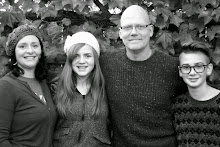
<
Over the past several months, God has been leading my heart to be attentive to the everyday stuff of life. To see Him in the ordinary things of life, the routine, the moments of my day. In his book, The Great Dance, C. Baxter Kruger writes of the beautiful "dance" of the Trinity that we are invited into. Unfortunately, we often miss this extraordinary invitation as we separate the "sacred" and the everyday by using categories in our minds like spiritual and secular.
Kruger writes,
Jesus is the light of the world. He is the secret, the key which unlocks the mystery of babies and baseball, fishing and barbecues, romance and love. He is the light which illuminates the mysteries of our humanity, from cooking supper and managing a hardware store and painting houses to friendship and laughter and music. It is all the way the dance of the Trinity is being played out in us. When you see the Trinity and the incarnation for what they are, you are poised to see yourself and your life in a new light, the true light. You are poised to see that there is nothing ordinary about you and your life at all. You and your life are the living expression of the glory and joy and beauty and love - the great dance - of the Father, Son and Spirit.
When you see the Trinity and the incarnation for what they are, you are poised to see yourself and your life in a new light, the true light. You are poised to see that there is nothing ordinary about you and your life at all. You and your life are the living expression of the glory and joy and beauty and love - the great dance - of the Father, Son and Spirit.So, this week we find ourselves with the assignment to look for pictures of the kingdom as we go about our lives. Armed with nothing more than a camera we are to capture these pictures where we see the Kingdom being lived out. I chose yesterday to document the moments of my life where I felt I could see the realities of God's kingdom. To the left, there are a few of the pictures that I took.

First of all, early in the morning I waited for two of my good friends, Craig and Bonnie Ward, who are leading a group of InterVarsity students on a 6-week trip to S. Africa and Malawi. I was asked to help lead a trip to Pilanseberg National Park for the day. As I waited in front of my house, I had the growing anticipation of seeing my friends and going to one of my favorite places. Their headlights made for a nice picture and signified the beginning of a beautiful day spent with people I love.

At Pilanseberg, we had the joy of watching a herd of zebra from an underground viewpoint. It felt like a gift to find zebra playing and interacting just meters away from us as we got a glimpse into the beauty of God's creation. Later that day, we found giraffe at another lookout point. As I watched this group of university students enjoy the scene together I thought about the beauty of relationships and what a joy it is to share incredible sights with people we know and love.
When I returned safely home that evening, I was tucking my son into bed when he suddenly grabbed the hat off my head, put it on his own head and smiled up at me. A small moment, but one that was so meaningful to me. As I left his room, I went to say "Goodnight" to my daughter and I found my wife reading a story to her. Somewhere in the midst of the story my daughter had fallen asleep. Laying so peacefully next to her mother I was reminded of God's great care for me, and my family.

Again, these were all small moments of my day - all together they may have made up 5% of my day. However, when viewed through the eyes of God's invitation to join Him in the great dance of the Trinity, I sense His joy as I enjoy my life and the moments of my day.


